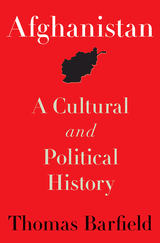For much of its existence, the feminist movement in the United States has looked like a loosely knit coalition of upstarts and insurgents making common cause around an evolving list of issues: suffrage, access to divorce, property rights, contraception, antidiscrimination law, sexual harassment, domestic violence, rape law and abortion rights, to name a few. In turn, feminism has apparently struck many historians as being both too topical and too diffuse to have a history. At least such a view offers the most likely explanation for an enduring deficiency. Although American historians have written incisive histories of marriage with attention to women's concerns (Nancy Cott's Public Vows: A History of Marriage and the Nation, Hendrik Hartog's Man and Wife in America: A History) and landmark biographies of feminist pioneers (Ellen Chesler on Margaret Sanger, Elizabeth Griffith on Elizabeth Cady Stanton, Nell Irvin Painter on Sojourner Truth), they have not given us any comparably authoritative history of the feminist movement in the United States. But now we have one.
Christine Stansell's magisterial The Feminist Promise traces the movement from its eighteenth-century inception to the present day, sorting out its crosscurrents and offering a useful narrative framework within which to situate its varied struggles....Though dense and impeccably documented, The Feminist Promise is lucid, accessible and well organized. It will be a benchmark for some time to come—although, as we shall see, it has a significant shortcoming.
For Nussbaum, the shortcoming is that "Stansell is indifferent to the role that ideas, particularly philosophical and economic ideas, have played in feminism's history."
Continue reading here.
JUSTICE BRENNAN: Liberal Champion by Seth Stern and Stephen Wermiel is reviewed by Dahlia Lithwick for the New York Times. "'Justice Brennan' provides the most comprehensive and well-organized look at the legendary liberal jurist to date," Lithwick writes.
Stern and Wermiel dig below the popular cliché of Bill Brennan as the Constitution’s Gene Kelly — all twinkling eyes and glad-to-see-ya Irish charm — to reveal the complicated (and quite conservative) man beneath. But the book is weakened by the long delay from conception to completion. With the release in recent years of, among other things, Lewis Powell’s, Harry Blackmun’s and some of Ruth Bader Ginsburg’s papers, plus the access granted Jim Newton to some of Brennan’s case histories for his 2006 book on the Warren court, “Justice Brennan” is very late to the party. There is a sense, at times, that Brennan has slipped away.Read the rest here.
MAKING OUR DEMOCRACY WORK: A Judge's View by Stephen Breyer is taken up by David Fontana in the Washington Post. Fontana finds the book to be "perhaps the most honest discussion of what a judge should do that you will ever find, all the more remarkable because it is written by a sitting Supreme Court justice. But it is also an example of the complexity that makes progressive approaches to the Constitution so challenging to sell to wider audiences."
Also in the NY Times, Sam Roberts reviews FINAL VERDICT: What Really Happened in the Rosenberg Case by Walter Schneir and THE INVISIBLE HARRY GOLD: The Man Who Gave the Soviets the Atom Bomb by Allen M. Hornblum.
Afghanistan: A Cultural and Political History by Thomas Barfield is reviewed by Christopher de Bellaigue in the New York Review of Books. Also in the NYRB,The Civil War of 1812: American Citizens, British Subjects, Irish Rebels, and Indian Allies by Alan Taylor is reviewed by Gordon S. Wood, The Unspoken Alliance: Israel’s Secret Relationship with Apartheid South Africa by Sasha Polakow-Suransky is reviewed by Joseph Lelyveld, and White House Diary by Jimmy Carter is reviewed by Garry Wills.
Washington: A Life by Ron Chernow is reviewed by The Conservative Assault on the Constitution by Erwin Chemerinsky. Jack Rakove, Revolutionaries is reviewed in The Nation by Robin Einhorn (subscription required).
Finally, both the San Francisco Chronicle and the New York Times discuss Tea Party books, including THE WHITES OF THEIR EYES: The Tea Party’s Revolution and the Battle Over American History by Jill Lepore.

